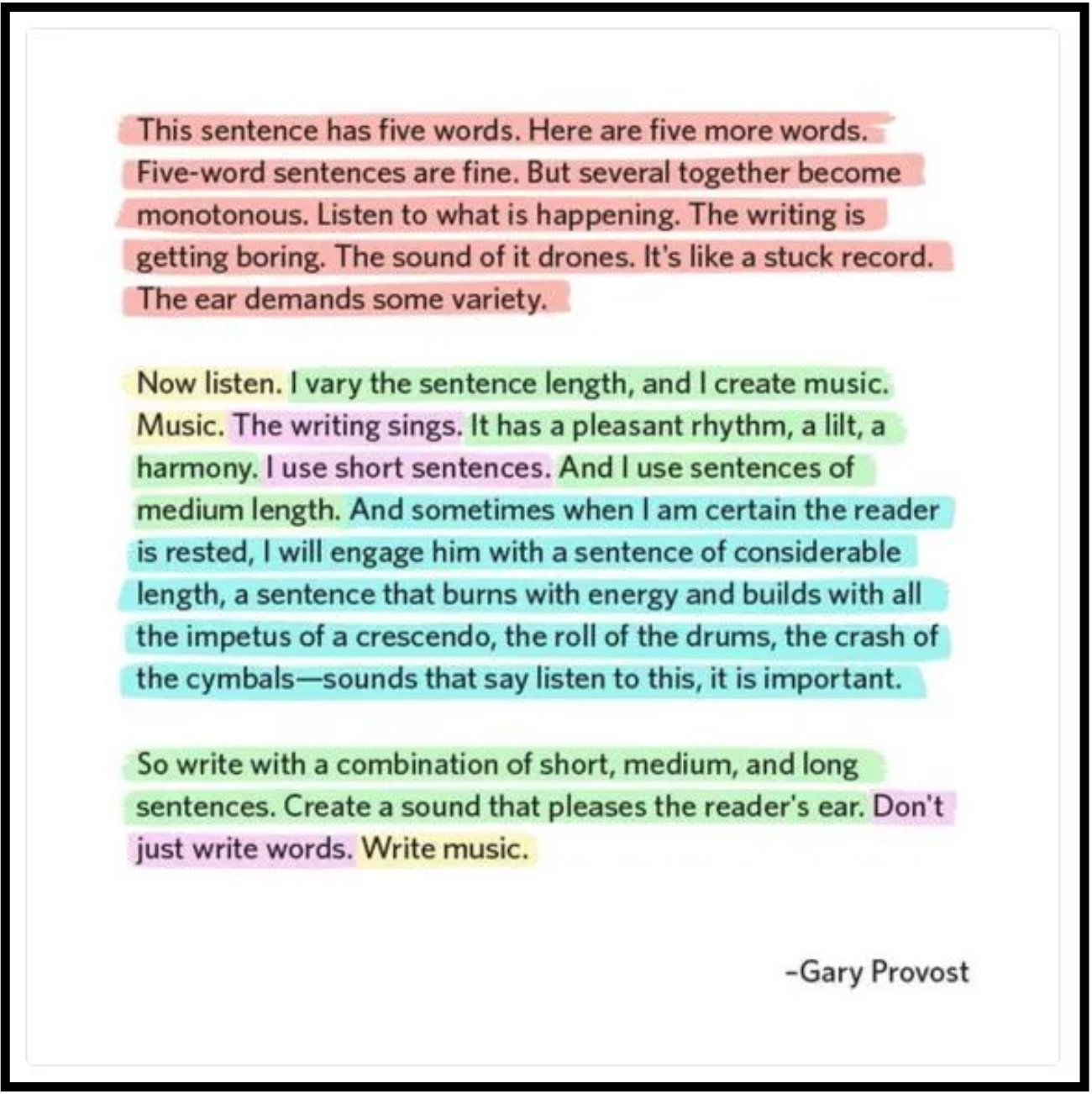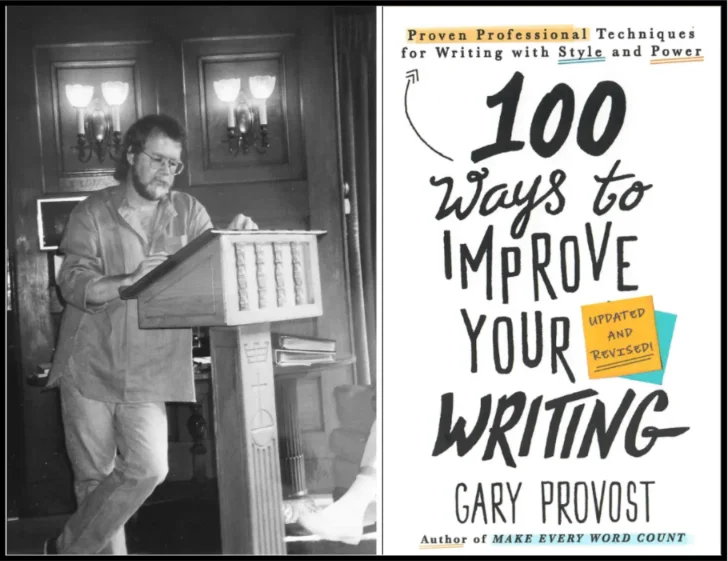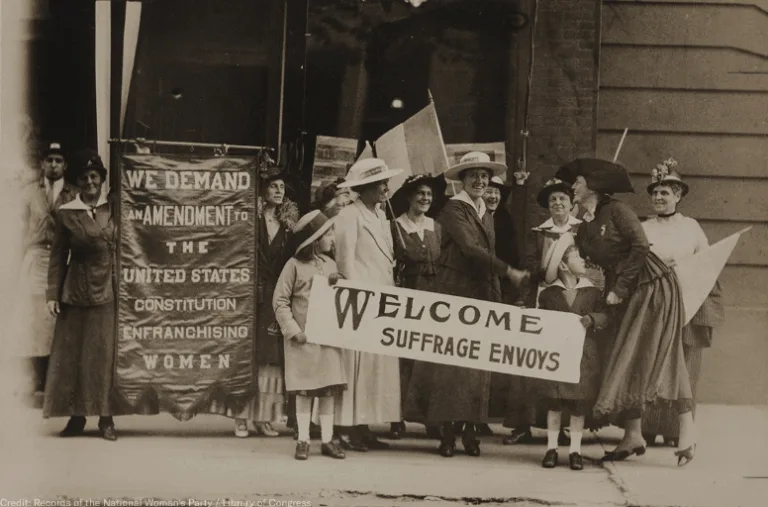Talking Big Ideas.
“Don’t just write words. Write music.”
~ Gary Provost
Gary Provost was an iconic coach.
One of America’s most beloved writing instructors, he taught tens of thousands of writers and authored more than a thousand published stories and two dozen books. His classic 100 Ways to Improve Your Writing is reminiscent of Strunk & White: tiny, packed with wisdom, and deserving of a space of your bookshelf.
Divided into eleven parts, 100 Ways covers everything from writer’s block to grammar, inspiration to punctuation. Part V is called Ten Ways to Develop Style. I cover the first five here.
1. Think About Style
To write with style we must first pay attention to style.
I often talk to clients about the difference in public speaking between messaging and delivery. Messaging is what we say, and delivery is how we say it. To deeply connect with our audience must put effort into both.
Gary has a similar distinction with writing: content is what we write about, and style is how we write it:
The word style means the way in which an idea is expressed, not the idea itself. Style is form, not content. A reader usually picks up a story because of content but too often puts it down because of style.
A good writer will make a boring subject exciting, while a bad writer will make an exciting subject boring. The difference is style.
Pay attention to the style you love in other writers, and think about style as you write.

2. Listen to What You Write
The comedian George Carlin famously believed that there are no good words or bad words. Rather, there are good and bad intentions and usage. “The words themselves are completely neutral.”
Gary agreed with George Carlin and applied the insight to all sounds. Sounds are neutral. Musical notes are neutral. It’s how they get combined and used that determines their quality.
Writing as an auditory art, Gary teaches us, not a visual one. Think of your writing as music your audience can hear:
To write is to create music. The words you write make sounds, and when those sounds are in harmony, the writing will work. . . . listen for the beat . . . it’s the music that matters.
Read what you write out loud and focus on listening for its music. Is there a melody? Can you find any awkward notes to cut? Any breaks to add?
Keep fiddling until you can hear the music.
3. Mimic Spoken Language
Good writing embodies the sound of an authentic human voice.
The reader should be able to hear the author’s voice. Quality writing is conversational, but not a direct replication of speech. Real conversations ramble, go off track, and spread out ideas – they are not information dense.
Writing allows the author to clean up the messiness of conversation and make the ideas crisp and powerful:
Mimic spoken language in the variety of its music, in the simplicity of its words, in the directness of its expression. But do not forfeit the enormous advantages of the written word. Writing provides time for contemplation. Use it well.
4. Vary Sentence Length
You’ve likely seen this part of 100 Ways as it’s an Internet sensation. The entire brief section is deservedly a viral image:

5. Vary Sentence Construction
We teach our clients the importance of vocal variety: to vary their volume, pacing, and inflection. In the 1980s cult classic film Ferris Beuller’s Day Off, the economics teacher (played by Ben Stein) intentionally spoke without any vocal variety to sound as boring as possible:
It’s the opposite of making music. Gary says the same is true for writing. Add variety not only to sentence length, add it to sentence construction as well.
When we were little kids we learned to make a sentence like this:

The puppy played with his tail. The bird flew over my head. The pickle fell on your floor.
It makes for a clear sentence, but repeating this cadence nonstop will quickly bore the reader. “Keep the primary elements of the sentence dancing,” Gary tells us, “so that they will create their own music.”
Take a moment to walk over to your bookshelf and pick out a quality book. Joan Didion or James Baldwin if you have them; they were style masters. Orwell and Fitzgerald too. And Stephen King or Michael Crichton will do, just choose an author who excites you.
Open to any page and read a couple paragraphs out loud. Notice the variety in the sentence construction.
Notice the music.




